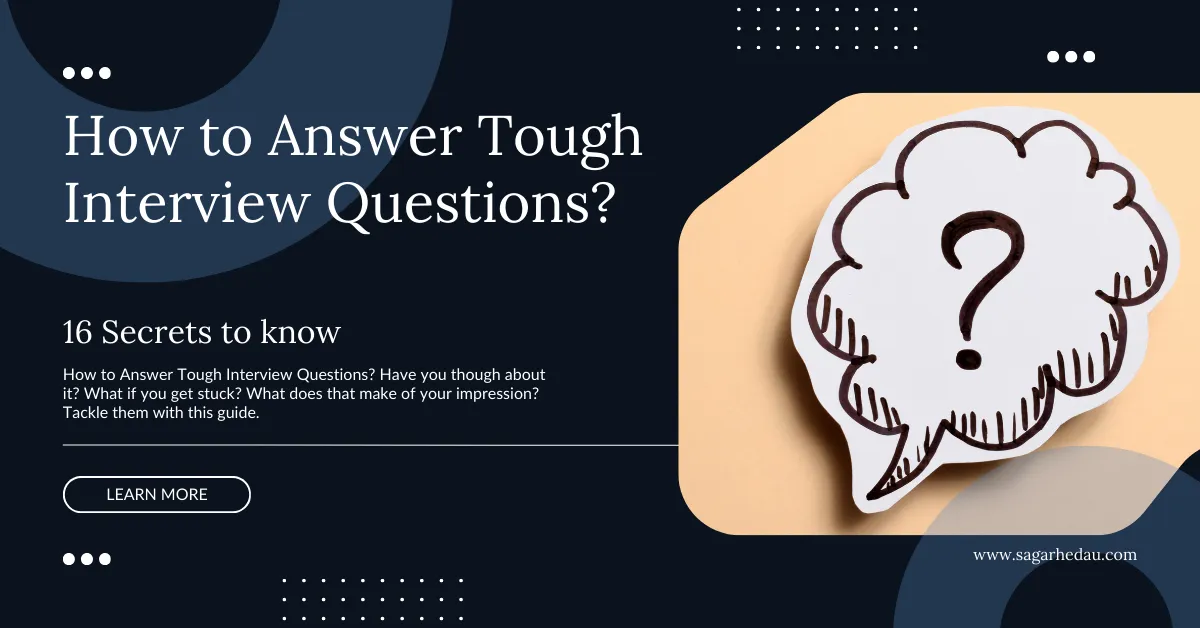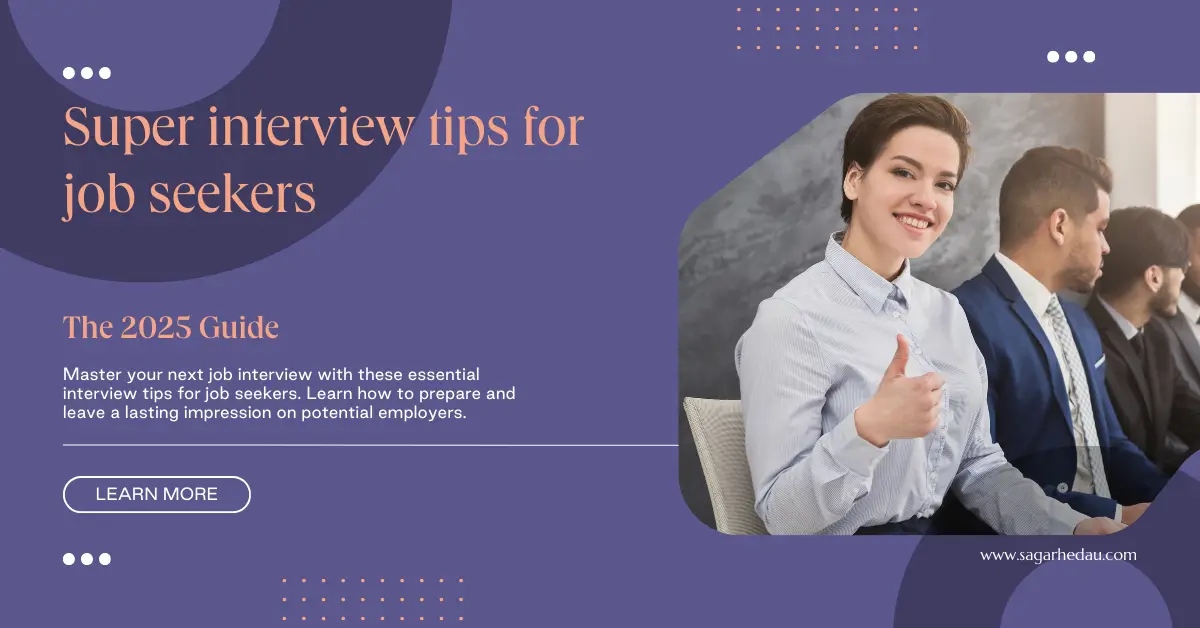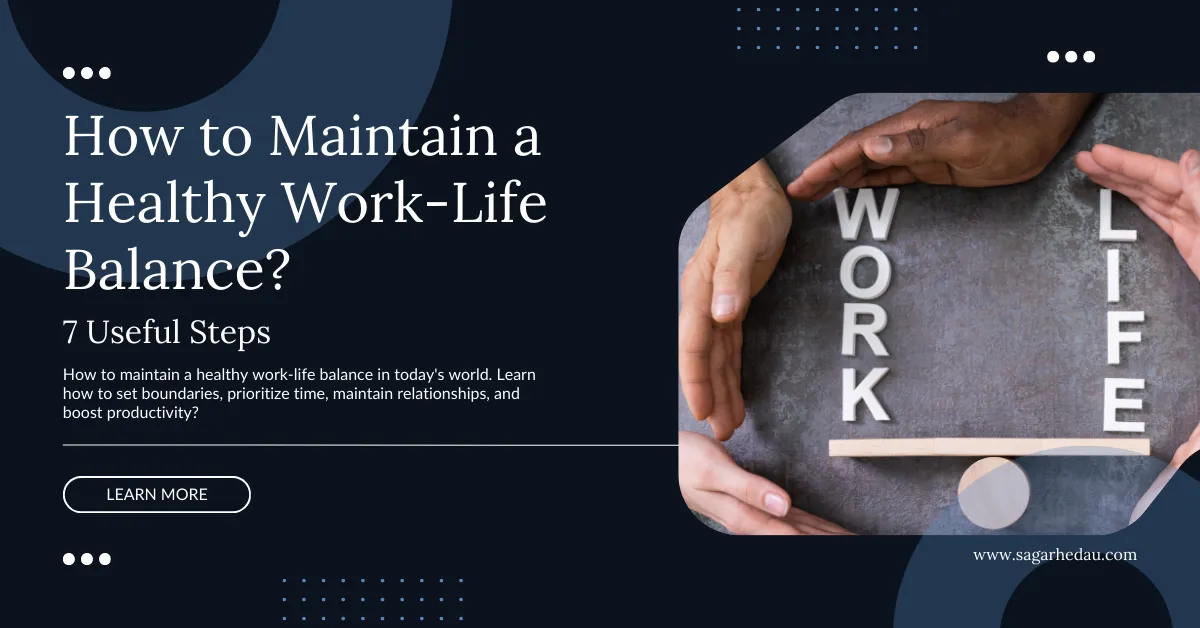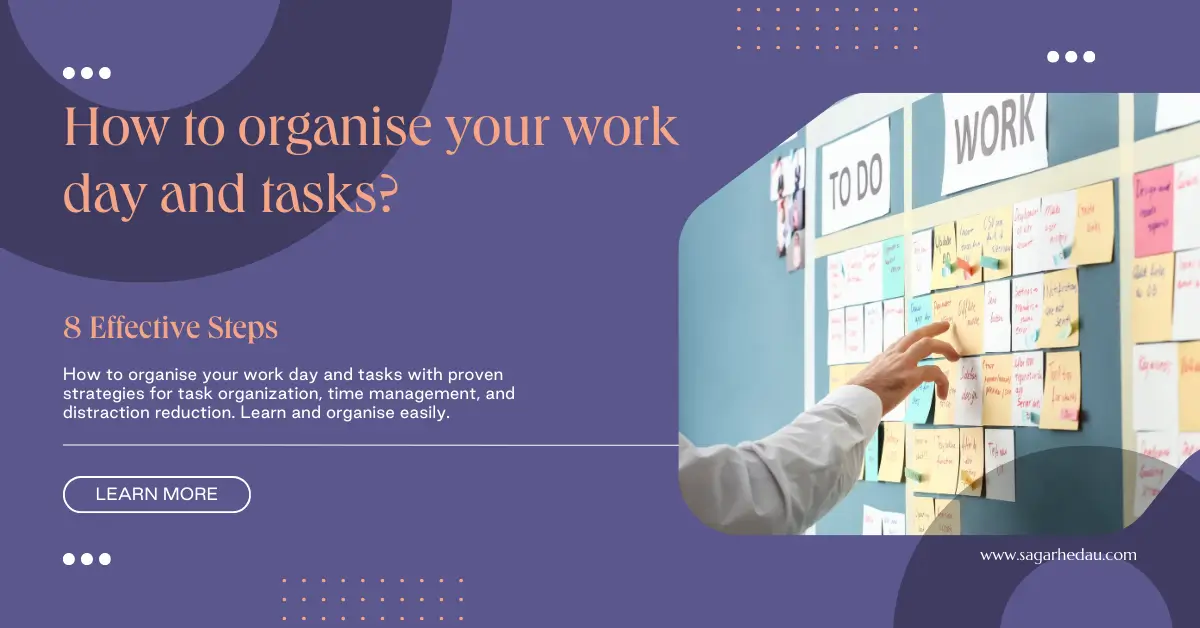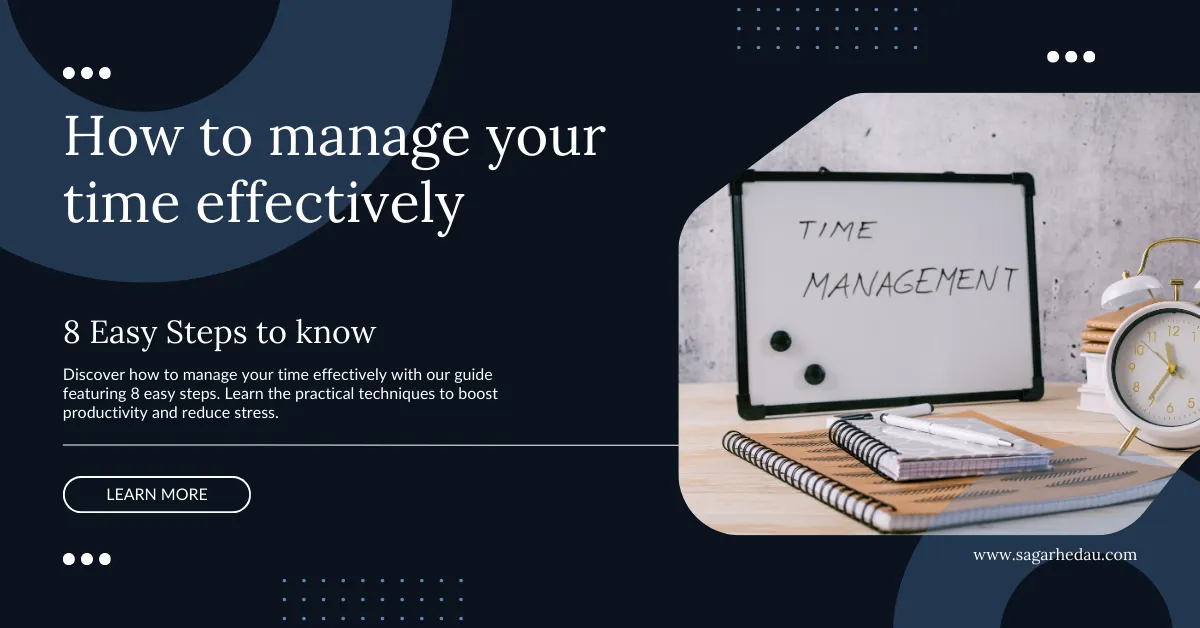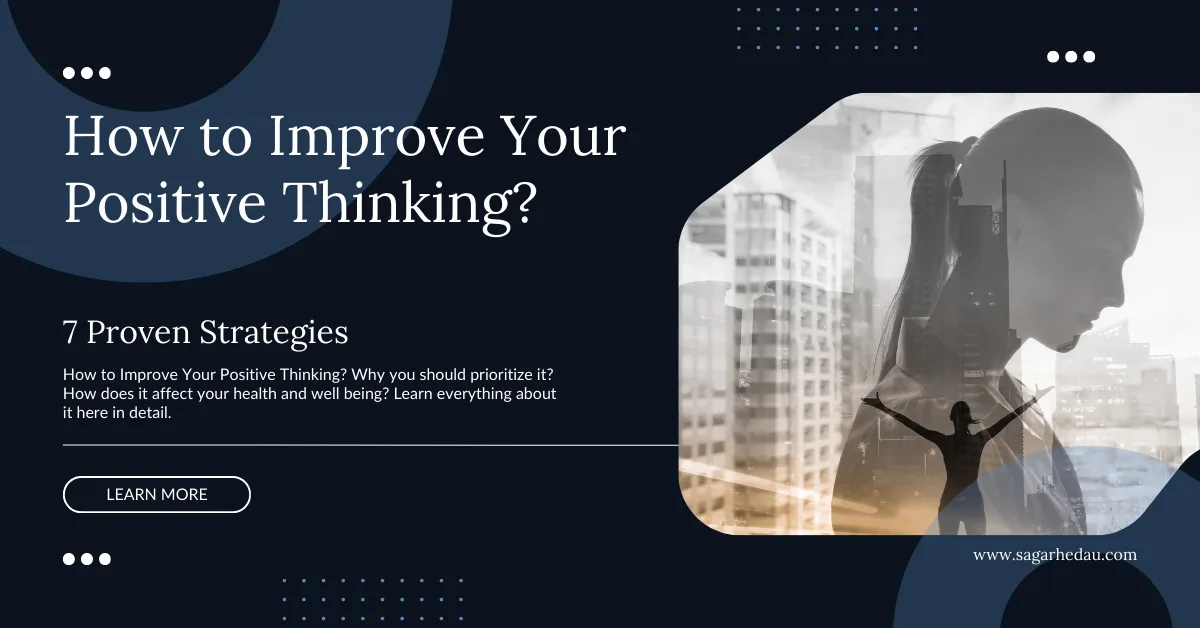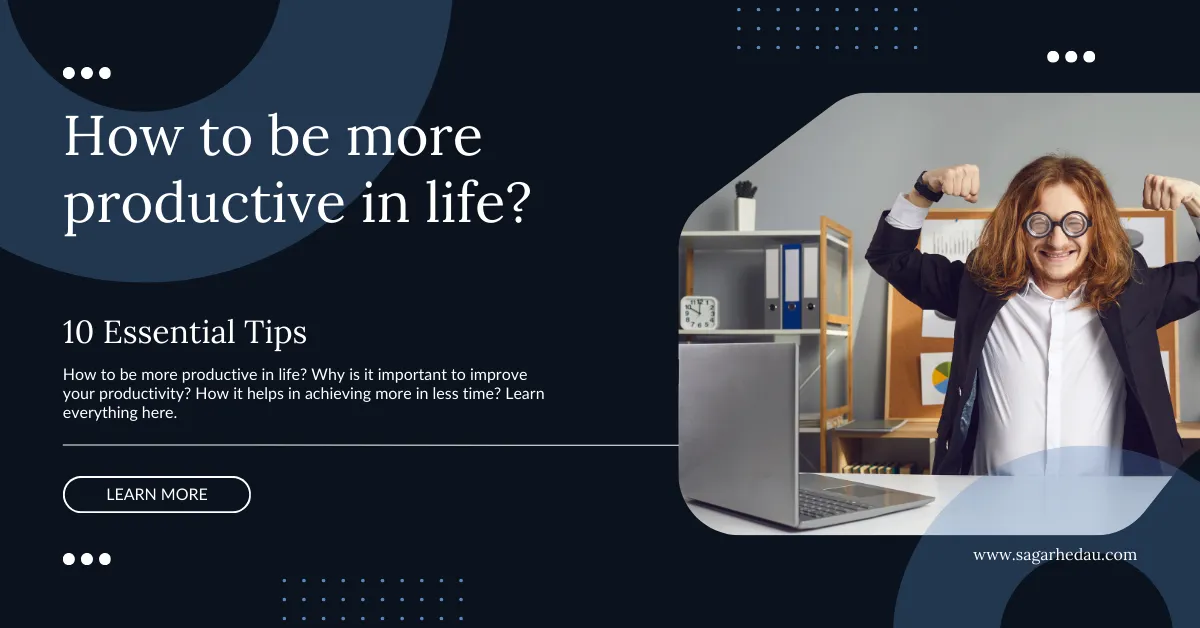How to Answer Tough Interview Questions? Interview preparation is crucial for career success, serving as the gateway to new opportunities and professional growth. By thoroughly preparing, candidates can boost their confidence, articulate their skills effectively, and make a lasting impression on potential employers.
However, even with preparation, tough interview questions can catch applicants off guard. These challenging queries often probe beyond surface-level qualifications, delving into a candidate’s problem-solving abilities, self-awareness, and cultural fit.
The common difficulties include unexpected scenarios, questions about weaknesses, and inquiries that seem to have no clear “right” answer. Many interviewees struggle with maintaining composure under pressure, providing concise yet comprehensive responses, and effectively highlighting their strengths without appearing boastful. Recognizing these challenges is the first step in developing strategies to navigate difficult questions and present oneself as a capable, thoughtful professional.
How to Answer Tough Interview Questions
General Strategies
Stay calm and composed
Maintaining composure during an interview is crucial, especially when faced with difficult questions. Focus on controlling your breathing and body language to project confidence. If you feel anxiety rising, take a slow, deep breath to centre yourself. Remember that interviewers expect some level of nervousness and are more interested in how you handle pressure.
Try to view challenging questions as opportunities to showcase your problem-solving skills rather than as threats. Preparation can help greatly with staying calm – the more familiar you are with common tough questions, the less likely you are to be caught off guard. Practice positive self-talk before and during the interview to keep your mindset optimistic and composed.
Take a moment to think before answering
It’s perfectly acceptable, and often beneficial, to pause briefly before responding to a tough interview question. This short break allows you to process the question fully and organize your thoughts, leading to more articulate and thoughtful answers. Resist the urge to fill silence with immediate, potentially rambling responses.
Instead, use phrases like “That’s an interesting question. Let me think about that for a moment” to acknowledge the question while giving yourself time to formulate an answer. This approach demonstrates careful consideration and can prevent you from giving hasty, ill-considered responses. Interviewers generally appreciate candidates who take the time to provide well-structured, relevant answers rather than those who rush to speak without thinking.
Ask for clarification if needed
Don’t hesitate to seek clarification on questions that are unclear, overly broad, or ambiguous. Asking for more details shows that you’re actively engaged in the conversation and committed to providing the most relevant and accurate response possible. It’s better to ask for clarification than to answer the wrong question or make incorrect assumptions.
Phrases like “To ensure I address your question fully, could you please provide more context?” or “Are you looking for information about a specific aspect of my experience?” can be helpful. This strategy not only ensures you understand the question but also demonstrates your communication skills and attention to detail – qualities valued by most employers.
Types of tough questions and how to handle them
Behavioural questions
Behavioural questions ask about past experiences to predict future performance. To handle these, use the STAR method: Situation, Task, Action, Result. Briefly describe the context, explain your role, detail the actions you took, and highlight the positive outcomes. Prepare several work-related anecdotes that showcase your skills and adaptability. When asked, choose the most relevant story and tailor it to the question.
Be specific and quantify results when possible. Remember to focus on your individual contributions, even when discussing team efforts. Practice telling these stories concisely to ensure you can deliver them smoothly during the interview.
Hypothetical scenarios
These questions assess your problem-solving skills and thought process. When faced with a hypothetical scenario, take a moment to consider the situation before responding. Break down your approach step-by-step, explaining your reasoning as you go. Focus on demonstrating logical thinking, creativity, and your ability to stay calm under pressure.
If relevant, draw on past experiences that inform your decision-making. Don’t be afraid to ask clarifying questions to ensure you understand the scenario fully. Remember, there’s often no single “correct” answer – interviewers are more interested in how you approach the problem and the factors you consider in your solution.
Questions about weaknesses
When discussing weaknesses, be honest but strategic. Choose a genuine weakness that isn’t critical to the job you’re applying for. More importantly, focus on how you’re actively working to improve. For example, if you mention struggling with public speaking, discuss the steps you’re taking to enhance this skill, such as joining a Toastmasters club.
Avoid clichés like “I’m a perfectionist” or “I work too hard.” Instead, show self-awareness and a commitment to personal growth. Frame the weakness as an opportunity for development rather than a permanent flaw. This approach demonstrates maturity, self-reflection, and a proactive attitude towards self-improvement.
Salary expectations
Discussing salary can be tricky. Before the interview, research typical salaries for the position in your industry and location. When asked, give a range rather than a specific number, which allows for negotiation. You might say, “Based on my research and experience, I’m looking for a salary in the range of X to Y.”
If pressed for a specific figure, aim for the higher end of your researched range. Be prepared to justify your expectations based on your skills, experience, and the value you’ll bring to the company. If you’re unsure, it’s okay to say you’d like to learn more about the role and responsibilities before discussing specific numbers.
A gap in employment history
When addressing employment gaps, honesty and positivity are key. Briefly explain the reason for the gap without oversharing personal details. Focus on how you used that time productively – perhaps you were caring for family, volunteering, freelancing, or developing new skills.
Emphasize any relevant experiences or skills gained during this period that could benefit the potential employer. If the gap was recent, discuss how you’ve kept your skills current and your enthusiasm for returning to work. The goal is to assure the interviewer that despite the gap, you’re fully prepared and excited to contribute to their organization.
Specific examples with sample answers
Tell me about a time you failed
This question assesses your self-awareness and ability to learn from mistakes. Choose a genuine failure, but one that’s not too recent or severe. Briefly describe the situation and your mistake, focusing more on what you learned and how you’ve grown since then. Explain the steps you took to rectify the situation and prevent similar errors in the future.
Emphasize the positive outcomes of this experience, such as improved processes or personal growth. Show that you take responsibility for your actions without being overly self-critical. Conclude by relating how this experience has made you a better professional, demonstrating your resilience and capacity for continuous improvement.
Where do you see yourself in 5 years?
This question gauges your ambition, commitment, and career planning. Align your answer with both your personal goals and the potential for growth within the company. Research the company’s structure and possible career paths before the interview. Express enthusiasm for growing with the organization, perhaps mentioning specific roles or responsibilities you’d like to take on.
Avoid mentioning positions that would be a lateral move or outside the company. Balance ambition with realism – show that you’re driven but also willing to earn your way up. Emphasize your commitment to developing skills and contributing to the company’s success, rather than focusing solely on titles or promotions.
Why should we hire you over other candidates?
This question is your opportunity to succinctly sell yourself. Start by summarizing your most relevant skills and experiences that match the job requirements. Then, highlight your unique strengths or combinations of abilities that set you apart. Mention specific achievements that demonstrate your capability to excel in this role.
If possible, show knowledge of the company’s challenges or goals, and explain how you can contribute to addressing them. Emphasize not just what you can do, but how your particular approach or perspective could benefit the team. Close with a statement that expresses genuine enthusiasm for the role and confidence in your ability to make a positive impact.
How to Answer Tough Interview Questions? Practice Techniques
Mock interviews
Mock interviews simulate real interview conditions, helping you practice your responses and build confidence. Find a friend, family member, or mentor to play the role of the interviewer. Provide them with common interview questions, including tough ones, and ask them to give honest feedback. Treat the mock interview as seriously as you would a real one – dress professionally and choose a formal setting.
This practice helps you refine your answers, improve your body language, and manage interview anxiety. It’s particularly useful for identifying areas where you tend to stumble or ramble. After each mock interview, discuss your performance with your partner and work on improving weak areas in subsequent practice sessions.
Recording yourself
Recording yourself answering interview questions is a powerful self-assessment tool. Use a smartphone or computer to video record your responses to common interview questions. This allows you to review your performance objectively, observing your body language, tone of voice, and verbal tics you might not notice otherwise. Pay attention to your pacing, clarity of speech, and how concisely you answer questions.
Look for signs of nervousness like fidgeting or excessive use of filler words. Practice until you appear confident and articulate. This technique is particularly helpful for refining your delivery and ensuring you maintain good eye contact (with the camera). It’s also useful for practising virtual interviews, which are increasingly common.
Seeking feedback
Actively seeking feedback is crucial for improving your interview skills. After mock interviews or recording sessions, ask trusted friends, family members, or mentors to review your performance. Be specific about the areas where you want feedback – perhaps your body language, the content of your answers, or your overall presentation.
Consider reaching out to professionals in your field for industry-specific advice. If you’ve had recent interviews that didn’t result in job offers, politely ask the interviewer for constructive feedback. Be open to criticism and view it as an opportunity for growth. Implement the feedback in your practice sessions and subsequent interviews. Remember, constructive criticism is invaluable for refining your interview skills and increasing your chances of success.
Follow-up Strategies
Asking thoughtful questions
Preparing and asking thoughtful questions demonstrates your genuine interest in the position and company. Research the organization thoroughly and prepare 3-5 insightful questions that show you’ve done your homework. Ask about the company’s future plans, team dynamics, or specific projects.
Avoid questions about basic information readily available on their website. Instead, focus on questions that showcase your knowledge and enthusiasm, such as “How does this role contribute to the company’s five-year plan?” or “Can you tell me more about the collaborative process between departments?” Listen attentively during the interview and ask follow-up questions based on the conversation, showing your engagement and quick thinking.
Addressing any concerns raised during the interview
Pay close attention to any hesitations or concerns the interviewer expresses during your conversation. If you notice any, address them proactively before the interview concludes. For example, if the interviewer seemed unsure about a gap in your employment history, you might say, “I noticed you had some questions about my career break.
I’d like to emphasize how I used that time to develop new skills that are relevant to this position.” This approach shows you’re perceptive and proactive in problem-solving. Be honest and direct in addressing concerns, focusing on positive solutions or explanations. This strategy demonstrates your communication skills and your ability to handle potential issues professionally.
To Conclude
So, how to answer tough interview questions??? Mastering the art of answering tough interview questions is a valuable skill that can significantly boost your chances of landing your dream job. By preparing thoroughly, staying calm under pressure, and employing the strategies discussed in this guide, you can turn challenging questions into opportunities to showcase your strengths and suitability for the role.
Remember, the key elements to success include:
- Thorough preparation and practice
- Maintaining composure during the interview
- Thoughtful and structured responses
- Honest self-reflection and continuous improvement
As you face your next interview, approach tough questions with confidence, knowing you have the tools to handle them effectively. Each interview is a chance to refine your skills further. With persistence and the right approach, you’ll be well-equipped to navigate even the most challenging interview scenarios and present yourself as the ideal candidate for the position.
Good luck with your future interviews!

